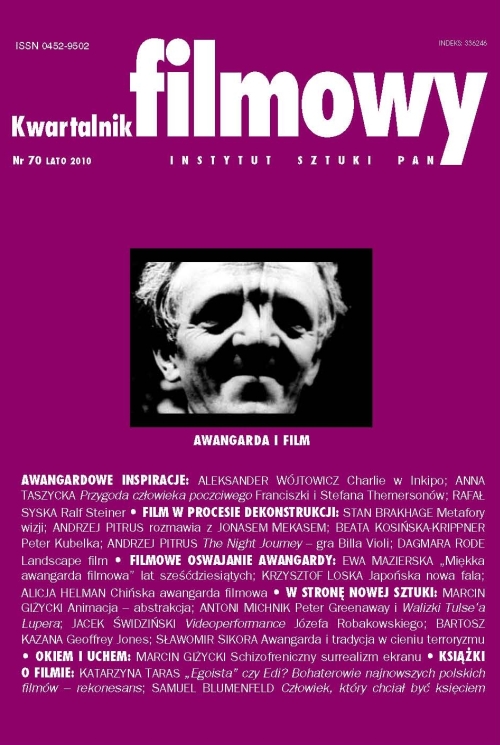Rewizje historii Polski a "miękka awangarda" filmowa lat sześćdziesiątych
Retelling Polish History Through the “Soft Avant-garde” Films of the Sixties
Author(s): Ewa MazierskaSubject(s): Theatre, Dance, Performing Arts
Published by: Instytut Sztuki Polskiej Akademii Nauk
Keywords: Skolimowski Jerzy; Konwicki Tadeusz; Solarz Wojciech
Summary/Abstract: The starting point for Mazierska’s argument is the definition of “avant-garde”. The author calls upon two definitions of this term: a wider definition (in which avant-garde means an artistic activity that moves beyond the limits of what is usually considered the norm within the given sphere of art), and a narrow definition (where avant-garde means a parallel, minor artistic style, that exists alongside the mainstream, and is in polemic dialogue with it). Having this classification in mind Mazierska presents three Polish films: Somersault (Salto, 1965) by Tadeusz Konwicki, The Barrier (Bariera, 1966) by Jerzy Skolimowski, and The Pier (Molo, 1969) by Wojciech Solarz. The avant-garde character of these films is questionable, and so the author identifies them as belonging to “soft avant-garde”. The films are marked by elements typical for the avant-garde style, for example the blurring of reality and non-reality, narrative inconsistency, separation of layers making up the film. In the context of Polish cinema these films can be considered to be bold experiments in the area of film narrative. The use of semiavant-garde style in these films was not an end in itself. Rather this style was used in order to show how people felt imprisoned by the narratives current at that time and to stir the debate related to the history of Poland and the Polish identity.
Journal: Kwartalnik Filmowy
- Issue Year: 2010
- Issue No: 70
- Page Range: 106-120
- Page Count: 15
- Language: Polish

